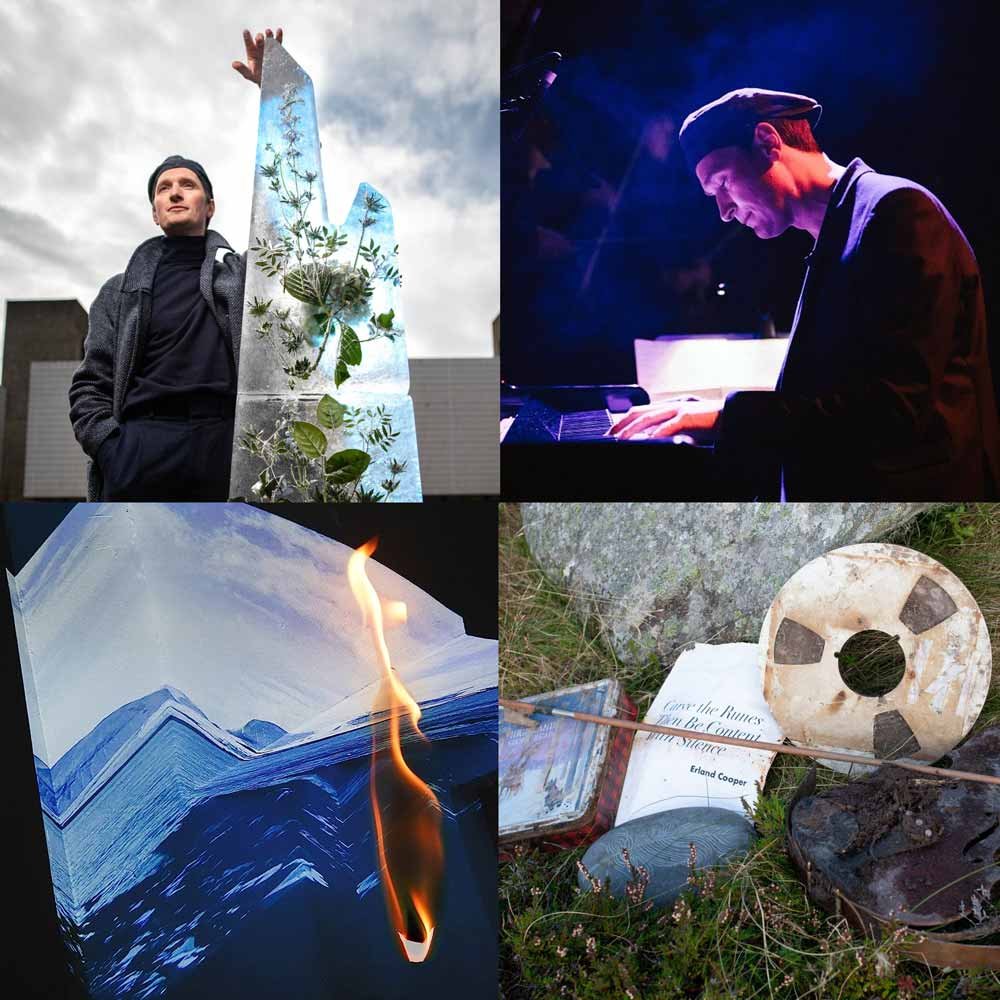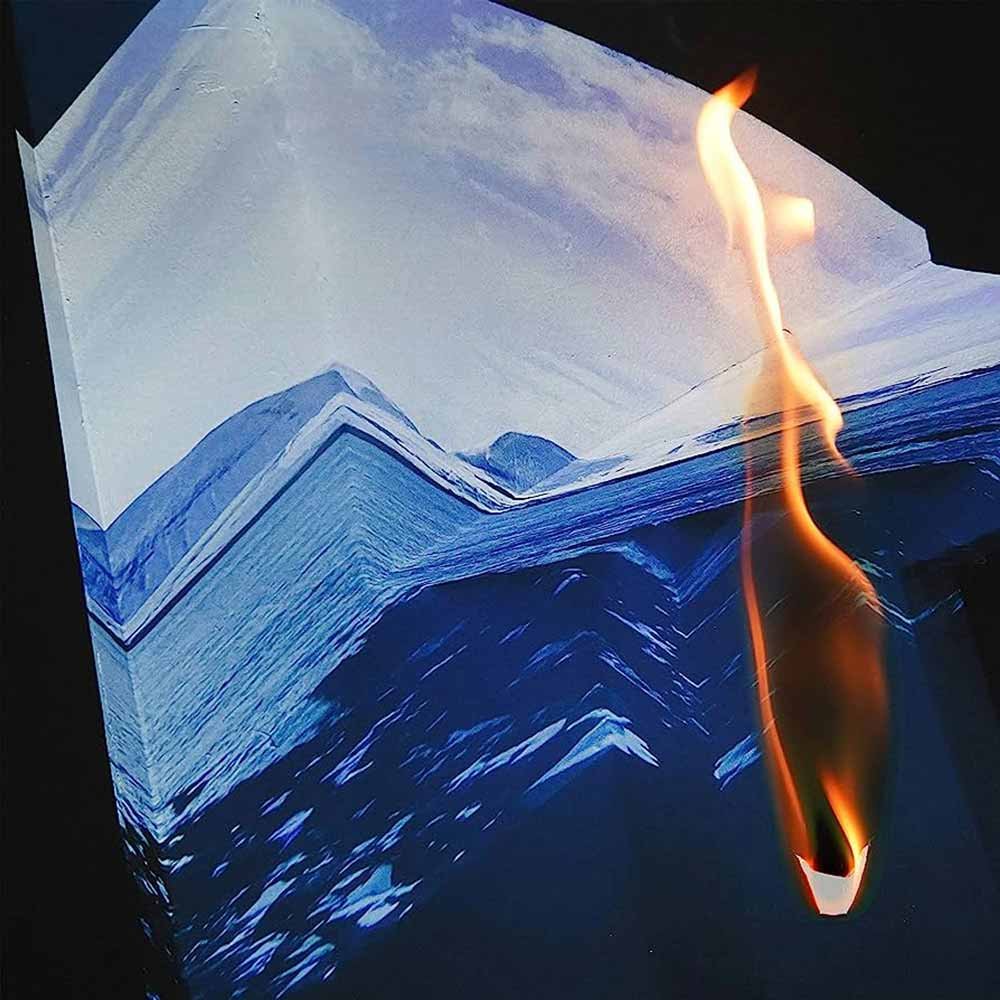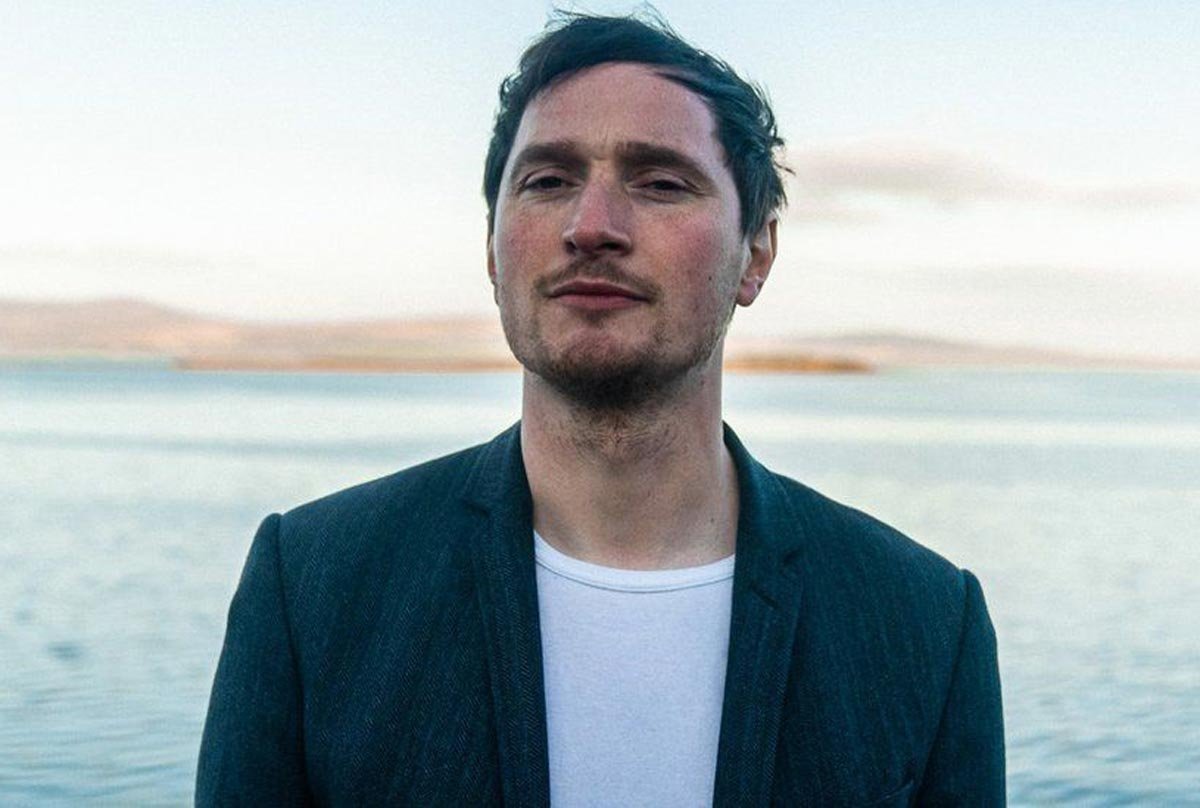In your life, how has music transported you? Where do you find inspiration from the natural world? Where do you find moments of every day magic?
Erland Cooper is a Scottish composer, producer, and multi-instrumentalist from Stromness, Orkney. He has released three acclaimed studio albums, four additional companion albums, and multiple EPs, including a trilogy of work inspired by his childhood home. His work combines field recordings with traditional orchestration and contemporary electronic elements. Through music words and cinematography, he explores landscape, memory, and identity. Cooper also works across mixed media projects, including installation, art, theater, and film. He is widely known for burying the only existing copy of the master tape of his first classical album in Scotland, deleting all digital files, and leaving only a treasure hunt of clues for fans and his record label alike to search for it. The tape has recently been found.
Photo by Alex Kozobolis
THE CREATIVE PROCESS · ONE PLANET PODCAST
You have named the Earth as a collaborator in your latest album Folded Landscapes. You can hear it in the process and in the post-production, and also charitably, you are giving back to it through Brian Eno’s project Earth Percent. So just tell us a little bit about your collaborator nature, Mother Earth.
ERLAND COOPER
I recently wrote a classical piece of music, and I went up to Glasgow, and we recorded this piece of work with this wonderful ensemble called Studio Collective. These fantastic musicians all gathered in one room. And I told them that once I'd put it onto the magnetic tape, I would delete all the digital copies so there only existed one copy. And all of a sudden, this piece of music, this process of creativity became incredibly precious to the people that made it. And somebody said, "Are you going to bury it?" And I replied, "I'm going to plant it in the earth somewhere in the Scottish Islands. And I'd like the soil over the next three years to collaborate with the music. So it's my final collaborator." I like this idea to compose, decompose, and then recompose. So the final piece of work when it comes out of the earth will reticulate the score with the new sounds, these new artifacts of decomposition that have been created by Mother Nature. For me, it's a kind of meditation on value and patience in a world of instant gratification.
THE CREATIVE PROCESS · ONE PLANET PODCAST
You said something that I really liked: Music can bring us to other places, but can also transform our perception of where we are now.
COOPER
Let's imagine for a moment a claustrophobic environment like the London Underground during rush hour. And you look around and everybody is in their own spaces connected to their own worlds. But music, you know, has the ability to transport you to a place and create a sort of internal landscape. And we all have life-changing things that happened to us. And I remember I made it as a way to kind of ease a busy mind. And perhaps I was missing home. I still call Orkney home, even though I'm not there every day. I'm a thousand miles away today, and I still call Orkney home. For example, when I hear the voice of the curlew, it transports me back to Orkney with such a jolt. In a heartbeat. And music can do that too. It's very transformative. Visual arts have the ability to do that too. And you could stare at a Rothko painting and cry and not quite know why. It can take days to figure out perhaps certain meanings from it. But music I think is quite instant. It can really do that.
THE CREATIVE PROCESS · ONE PLANET PODCAST
You mentioned starlings and their beautiful murmuration. I don't think everyone knows that their the murmuration is actually, beyond being artistic, this wonderful display and choreography that I don't think the best dancers could do, is also starlings means of survival and evading predators. So it makes me reflect on this theme of climate change in Folded Landscapes. We recognize that we will have to adapt to survive. That's the big challenge. But if we could embrace our adaptation and our survival and make it something that's not about depriving ourselves, but maybe being more in tune with both nature and each other, working in a murmuration.
COOPER
I often feel that a lot of facts surrounding the science of climate change and how arguments are presented can be very overwhelming to most people. And people tend to often switch off after a point. But I think what the arts and music can do in particular is they can make humans feel something for a moment. And it's when you feel something that you tend to make instinctive decisions about how you might change, how you might go about the rest of your day, how you might make decisions that might affect other people. And the arts in particular. This is a very potent method of doing that.
THE CREATIVE PROCESS · ONE PLANET PODCAST
I think that that's ultimately why we don't have to fear AI competing with us because AI has too many choices and too much information. And we've all read novels or heard music that has just too much, you know, too much. Ultimately, it’s about making choices. And sometimes you need to clarity of going into a dark room and that's it - becomes itself.
COOPER
It does. Limitations are the greatest, greatest tools for advancing something. And that's where a narrative for me works very well. It acts like a kind of nautical map. I know where I'm going, and I know if I've gone way off course and I shouldn't be there because I look back at the limitations I've set for myself based on the stories within it.
One of our great British artists is Brian Eno, and he spoke a lot about limitations. I had the great joy of having a conversation. We ended up chatting for a couple of hours and he said, "Oh, I want to show you something. I want to show you my library, and this tool I've created!" His Sonic Library, which is decades of audio material. (I have something similar. I call it an orphanage of sound. These files and folders that will eventually find a home.) But he's created a piece of software using algorithms that will at random pull out sounds and play them. And he can set certain parameters: I want a string sound to be here. And I'd like some bass sounds to come in. And I'd like some drum sounds, but it's just choosing these layers and playing them all at the same time. Again, a bit like the cacophony of birdsong. It's a bit of a mess initially, but then you can edit, and you start to refine. And in those limitations that have come out of this tool - and this is the point I guess I'm trying to make - is that it can be used as a tool to set limits or to burst limits. Or to mix things up. Out of that editing process, you can output something that to your ear sounds good to somebody else's ear.
THE CREATIVE PROCESS · ONE PLANET PODCAST
And you've also gained inspiration from cities, but nature seems to be the place that you really draw a lot of inspiration from, beyond the human voices.
COOPER
It was the Summer Solstice yesterday. And there was this orange burning sun just dipping down below the skyline of the city, and it reflected across three buildings through the glass. This daylight, this last glimmer - or the grimlin, as we call it in Orkney, or the simmer dim - kind of echoing across the glass, reflecting across the glass. And for a moment, we're talking a millisecond, I was on the Highlands. I was back home. And it's those moments, you know, they're everywhere. I love to find that little bit of magic in the everyday.
Photo by Samuel Davies
This interview was conducted by Mia Funk, Dara Diamond & Sabrina Kim with the participation of collaborating universities and students. Associate Interviews Producers on this episode were Dara Diamond & Sabrina Kim.
Mia Funk is an artist, interviewer and founder of The Creative Process & One Planet Podcast (Conversations about Climate Change & Environmental Solutions).






















































